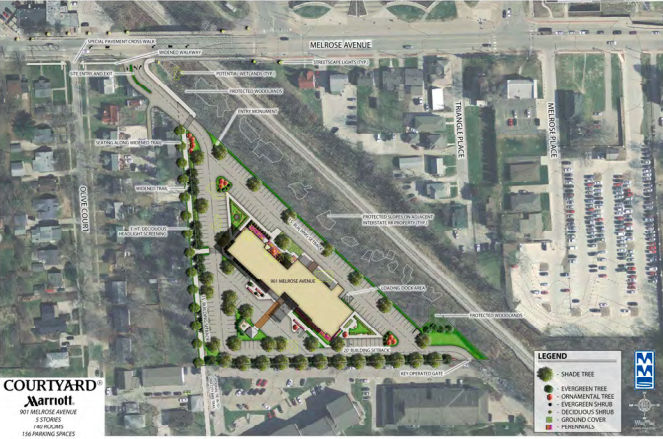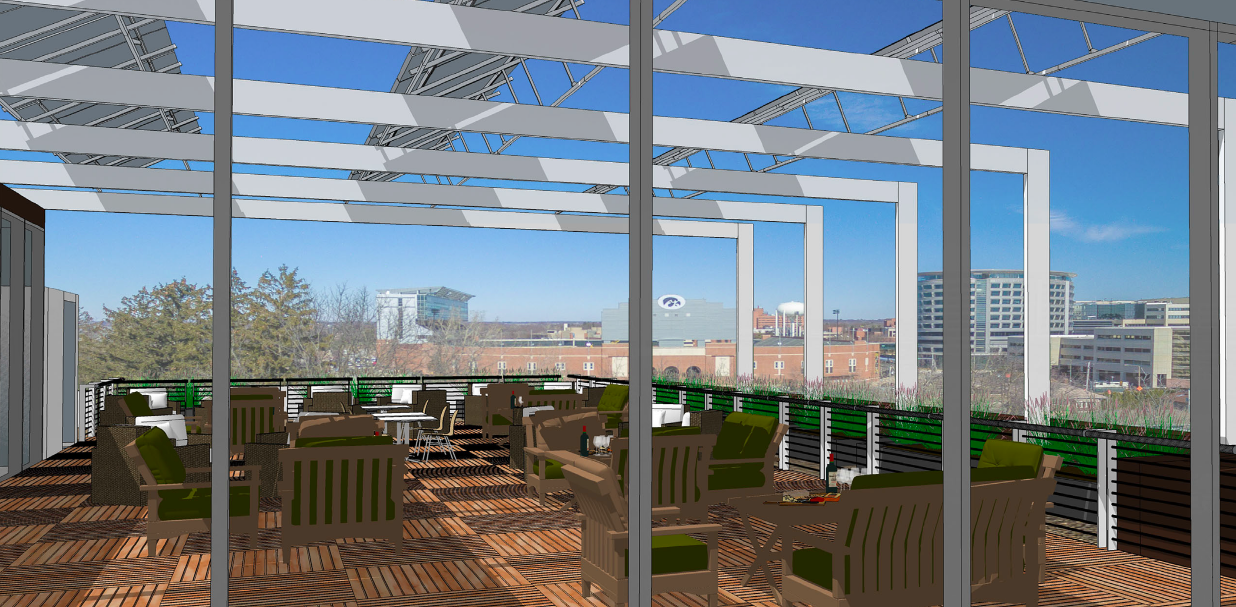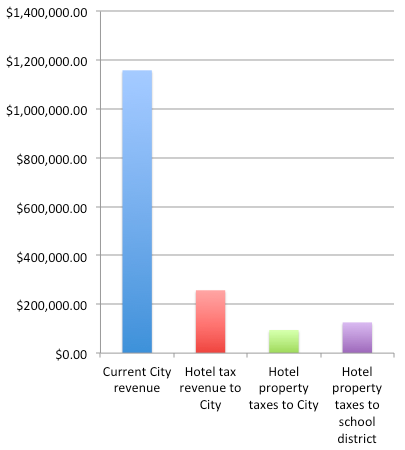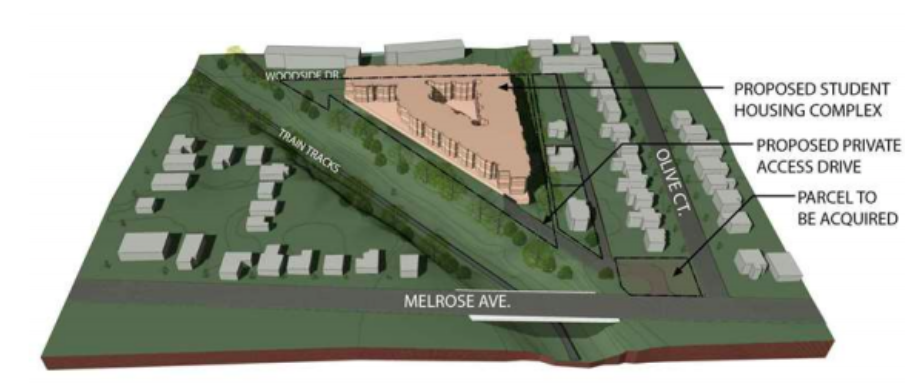What kind of hotel is it? Where is the proposed hotel?

What is the option for a rooftop restaurant?

How much revenue can we expect from the hotel?

How do you propose to use the revenue?
- Acquire the Swisher Tract for walking/jogging/biking, consider a dog park, as well as an amphitheater for outdoor concerts and performances.
- Relocate and rehabilitate the historical house currently at 901 Melrose. Similar to Manville Heights' Ned Ashton House on Park Road, this is a historic house that could serve as a City Library or Coffee House.
- Fund community events, such as summer chautauquas, the Farmers Market, and the Luminary Walk.
- Provide incentives for residents to invest in improvements (with an emphasis on energy efficiency) that will increase property values.
- Incentivize long-term residency.
- Eventually consider property tax relief.
- Pay for sidewalk repairs (currently paid by homeowners).
- Accelerate the repair of City streets and curbs.
- Install new lights in streets where there isn't good coverage.
What was the process for approving the hotel?
What conditions did the City set for the hotel to move forward?
- Not seek any type of financial assistance from the City (including TIF).
- Transfer two investor-owned properties on Olive Court or one on Olive Court and the other being 905 Melrose Avenue to an organization to be selected by the City to turn them into owner-occupied homes. We expect homeownership will help revitalize the neighborhood and increase property values.
- Not acquire additional properties in the area. This prevents further expansion of the hotel.
- Transfer ownership of the home currently on 901 Melrose Avenue to the City. The home has some historical architectural value and the City would have one year to relocate it.
- The hotel brand may not be changed unless approved by City Council.
Is there any corporate welfare in the deal?
Why did you vote in favor of the hotel?
My vote reflected addressing the concerns of various constituent groups in University Heights. For example, (1) there is no corporate welfare or TIF in this proposal; (2) the historic house on 901 Melrose will belong to the City and is ours to figure what to do next; (3) no additional single family homes can be purchased by this development team to turn into businesses, and finally (4) the developer turns two investment rentals into owner-occupied homes on Olive Court. This is a significant series of wins for our relatively small city. Even if we take very conservative estimates, City revenue will increase by more than 30% without adding new residents, or increasing taxes. This will give us the resources to stabilize our neighborhoods, promote community, protect green spaces, and provide financial security for our City. I can't find a better deal in the Iowa City area. It's very easy to promise, but very hard to deliver unless you have the resources.
After the vote I learned that the Swisher Tract can go on sale. With the hotel revenue we can afford to buy it and keep over 9 acres in our City as designated green space.
What will happen to property values of homes near the hotel?
Has anything else been previously proposed for the same property?
Yes. Council considered a proposal for a 506 bed student housing project in November of 2014. A community forum took place to consider the proposal. The proposal was turned down (I did not favor it). We received another proposal for a 120 unit rental apartment project in March of 2016. This proposal never made it to a community forum and was also turned down (I did not favor it).
